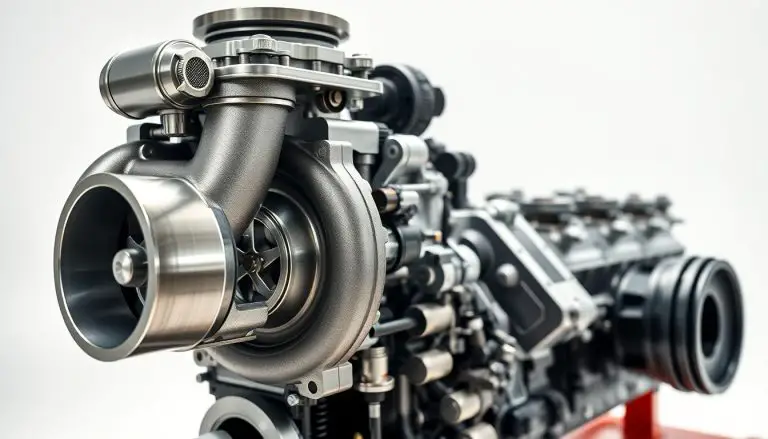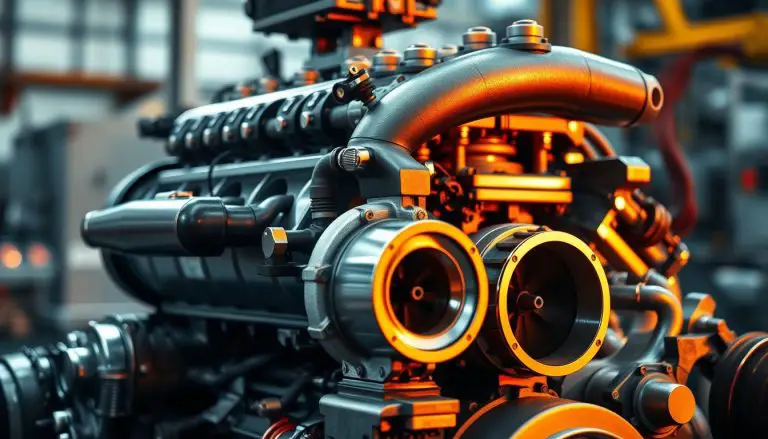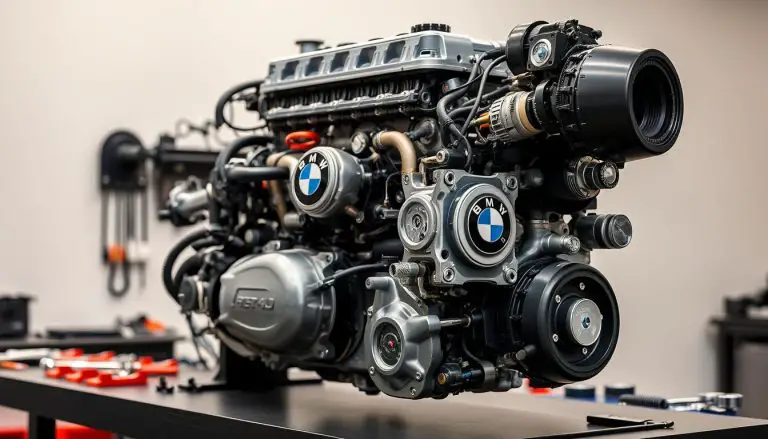The Citroen/Peugeot 1.5 HDi engine has garnered significant attention within the automotive community. Its widespread application across various models underscores the importance of its reliability in assessing the vehicle’s overall performance and durability.
This article aims to provide an in-depth examination of the Citroen/Peugeot 1.5 HDi engine, focusing on its merits and drawbacks to deliver an authoritative assessment of its dependability.
Our investigation encompasses multiple dimensions, including performance, upkeep, and prevalent malfunctions, to offer a thorough insight into the engine’s capabilities and potential shortcomings.
Key Takeaways
- Overview of the Citroen/Peugeot 1.5 HDi engine’s performance and reliability
- Common issues and maintenance requirements
- Expert analysis of the engine’s strengths and weaknesses
- Tips for maintaining optimal engine performance
- Comparison with other engines in its class
Overview of the Peugeot1.5 HDi Engine
The Peugeot 1.5 HDi engine represents a pinnacle of contemporary engineering, harmoniously merging potency with economical fuel consumption. This engine has garnered significant attention for its technical attributes, design, and its integration into a diverse array of vehicles.
Technical Specifications and Design
The Peugeot 1.5 HDi engine is distinguished by its advanced technical specifications. It is a turbocharged, direct injection diesel engine, crafted to maximize fuel efficiency while ensuring formidable performance. Its key specifications include:
| Specification | Detail |
|---|---|
| Displacement | 1.5 Liters |
| Fuel Type | Diesel |
| Power Output | Up to 130 HP |
| Torque | Up to 300 Nm |
The engine’s design incorporates cutting-edge technologies such as turbocharging and direct fuel injection, significantly boosting its performance and efficiency.
History and Vehicle Applications
Introduced in 2017, the 1.5 HDi engine was conceived to supplant the antiquated 1.6 HDi engine, offering enhanced fuel efficiency and diminished emissions. It has been employed in a multitude of Peugeot and Citroen models, including the Peugeot 308, 508, and Citroen C4, C5 Aircross.
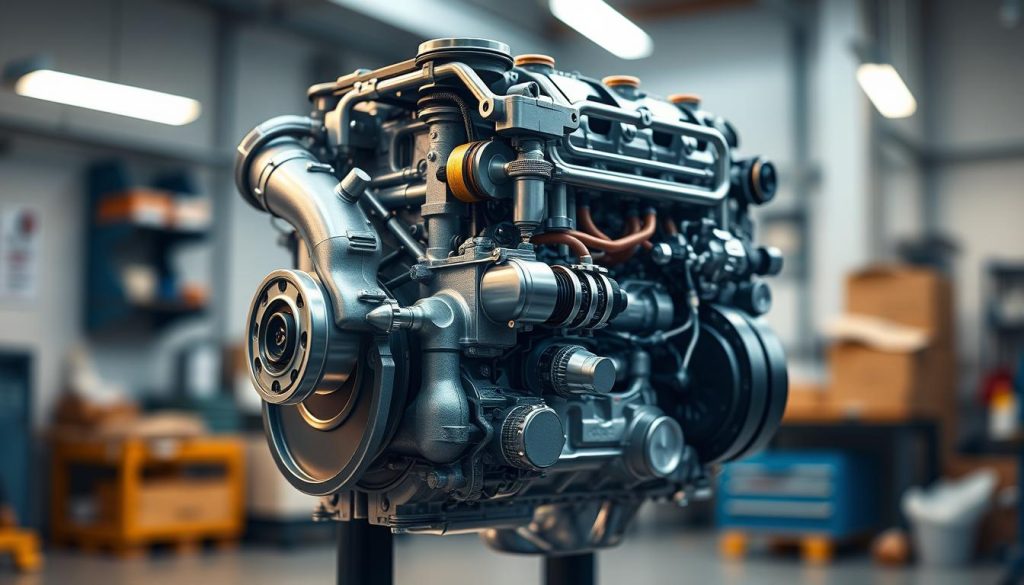
The 1.5 HDi engine’s versatility is manifest in its extensive applications, spanning from compact cars to SUVs, underscoring its adaptability and performance prowess.
Peugeot1.5 HDi Engine Reliability Assessment
The evaluation of the Peugeot 1.5 HDi engine’s reliability necessitates an examination of its performance across diverse scenarios and durations. This critical assessment elucidates the engine’s efficacies and vulnerabilities, offering indispensable information to prospective and current proprietors.
Long-term Durability Factors
The long-term durability of the Peugeot 1.5 HDi engine is contingent upon several pivotal elements, including the quality of maintenance, driving practices, and environmental factors. Adherence to a regular maintenance regimen, encompassing timely oil changes and filter replacements, is instrumental in prolonging the engine’s operational life.
Driving habits significantly influence the engine’s durability. Aggressive driving, frequent urban driving, and towing can diminish the engine’s longevity. In contrast, moderate driving practices and regular highway usage contribute to the engine’s preservation.
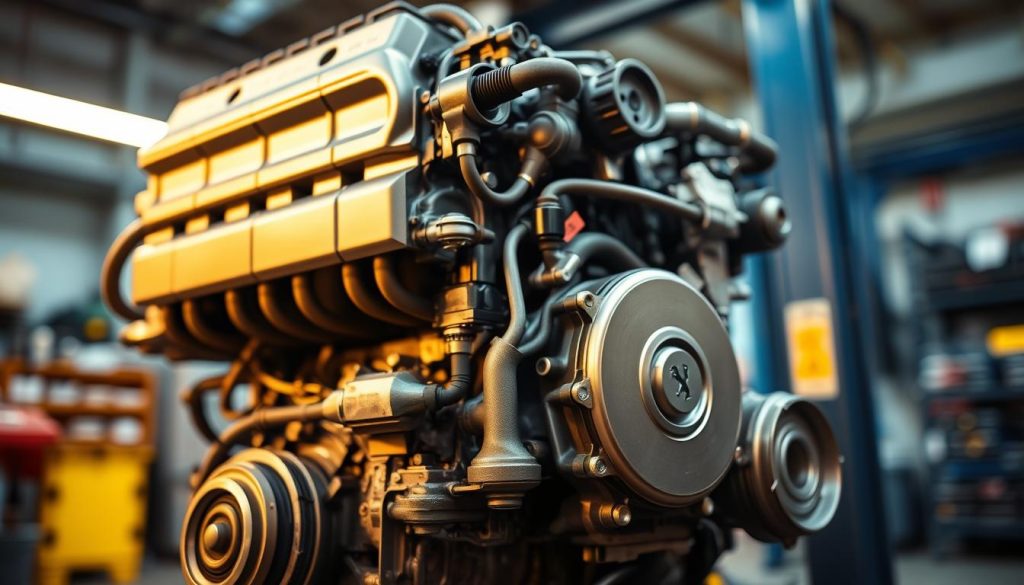
Common Reliability Issues
Despite its commendable reliability, the Peugeot 1.5 HDi engine has encountered prevalent issues. These encompass malfunctions in the fuel injection system, turbocharger failures, and sporadic reports of engine oil leaks. Timely resolution of these problems is imperative to avert more severe complications.
- Fuel injection system malfunctions can precipitate a decline in engine performance and fuel economy.
- Turbocharger failures, albeit not common, entail significant repair costs if not addressed promptly.
- Engine oil leaks, if not rectified expeditiously, can result in engine damage and potentially induce overheating.
Owner Experiences and Feedback
Feedback from Peugeot 1.5 HDi engine proprietors offers invaluable, real-world insights into its reliability. Many owners have documented high mileage without encountering major issues, commending the engine’s fuel efficiency and overall performance. Notwithstanding, some have encountered the aforementioned problems, underscoring the necessity of consistent maintenance and inspections.
Owner forums and reviews abound with discussions on the engine’s reliability, featuring numerous testimonials of positive experiences and maintenance tips.
Performance and Efficiency Analysis
The Peugeot 1.5 HDi engine is celebrated for its harmonious blend of performance and efficiency. This analysis explores its power output, fuel economy, driving dynamics, and environmental footprint.
Power and Torque Characteristics
The 1.5 HDi engine exhibits remarkable power and torque, rendering it versatile across various driving scenarios. Its maximum power output of approximately 130 horsepower and peak torque of 300 Nm ensure adequate acceleration and responsiveness. The turbocharged configuration enhances the engine’s performance, delivering power smoothly and efficiently.
Fuel Economy Ratings
The 1.5 HDi engine’s exceptional fuel economy is a notable attribute. Official ratings indicate a combined cycle fuel efficiency of up to 65 mpg, positioning it as a cost-effective option. The engine’s fuel efficiency is a result of its advanced fuel injection system and optimized combustion process.
Driving Experience
The driving experience with the 1.5 HDi engine is marked by its refined and quiet operation. The incorporation of a variable geometry turbocharger contributes to a smooth and responsive driving experience. Whether in urban settings or on highways, the engine offers a comfortable and engaging driving experience.
Emissions Compliance and Environmental Impact
The 1.5 HDi engine not only excels in performance and efficiency but also meets stringent emissions standards. Equipped with advanced emissions reduction technology, it adheres to Euro 6 regulations. The engine’s environmental impact is further reduced through its optimized combustion process and lower fuel consumption.
| Specification | Value | Unit |
|---|---|---|
| Maximum Power | 130 | hp |
| Peak Torque | 300 | Nm |
| Fuel Economy (Combined) | 65 | mpg |
| Emissions Compliance | Euro 6 | – |
Maintenance Requirements and Ownership Costs
The maintenance costs and requirements of vehicles with the 1.5 HDi engine significantly influence the overall ownership experience. It is imperative for both prospective and current owners to comprehend these aspects thoroughly. This understanding is crucial for effective planning and budgeting.
Recommended Service Intervals
The Peugeot 1.5 HDi engine necessitates regular servicing to preserve its performance and longevity. The recommended service intervals typically involve oil changes every 12,000 to 20,000 miles, contingent upon driving conditions. More comprehensive services are advised at longer intervals.
Regular maintenance tasks encompass the inspection and replacement of air filters, the examination of brake pads, and the monitoring of fluid levels. Adherence to these intervals is instrumental in averting major issues and ensuring the engine’s smooth operation.
Common Repair Expenses
Despite its reputation for reliability, the 1.5 HDi engine may require repair or replacement of certain components over time. Areas of concern include the fuel system, turbocharger, and engine management sensors.
Repair expenses can fluctuate significantly, influenced by the nature of the issue and the costs of parts and labor. For instance, the replacement of a faulty turbocharger can be expensive. Regular maintenance, though, can help to mitigate such costs.
| Component | Average Cost of Repair/Replacement |
|---|---|
| Turbocharger | $1,500 – $3,000 |
| Fuel Injector | $200 – $500 per injector |
| Engine Oil Pump | $500 – $1,000 |
DIY Maintenance Possibilities
Many maintenance tasks for the 1.5 HDi engine can be undertaken by DIY enthusiasts, potentially reducing ownership costs. Tasks such as oil changes and filter replacements are relatively straightforward.
Conversely, more intricate tasks may necessitate specialized tools and expertise, prompting the advisability of professional mechanic consultation. It is crucial to evaluate the costs and benefits of DIY maintenance against professional service.
Parts Availability and Aftermarket Support
The availability of parts for the 1.5 HDi engine is generally satisfactory, attributed to its widespread application in various Peugeot and Citroen models. Both OEM and aftermarket parts are accessible, offering a spectrum of options for owners.
Aftermarket support is robust, with numerous suppliers providing performance upgrades and enhancements. This is advantageous for owners seeking modifications or cost-effective repairs.
Conclusion: Is the1.5 HDi Engine Worth Considering?
The Peugeot 1.5 HDi engine emerges as a stalwart choice for numerous drivers, striking a harmonious balance between performance, efficiency, and longevity. Our comprehensive analysis underscores its technical prowess, enduring durability, and maintenance necessities, positioning it as a commendable option for those in pursuit of a steadfast vehicle.
In assessing the Peugeot 1.5 HDi engine’s dependability, it is imperative to scrutinize its performance and efficiency. Its commendable fuel economy ratings and adherence to emissions standards underscore its reliability and eco-friendliness. The driving experience is further elevated by its robust power and torque outputs.
In summation, the Peugeot 1.5 HDi engine stands as a reliable alternative, fortified by its robust design and satisfactory owner feedback. For individuals in the market for a new vehicle, this engine merits serious consideration, given its overall Peugeot 1.5 HDi Engine Reliability and Engine Reliability. By meticulously weighing the advantages and disadvantages, prospective buyers can make an informed decision regarding whether this engine aligns with their requirements.
FAQ
What is the average lifespan of the Peugeot/Citroen 1.5 HDi engine?
The Peugeot/Citroen 1.5 HDi engine’s lifespan, contingent upon regular maintenance, typically spans between 150,000 to 200,000 miles.
Are there any common issues with the 1.5 HDi engine?
Issues frequently encountered with the 1.5 HDi engine include diesel particulate filter malfunctions, fuel system anomalies, and occasional turbocharger failures.
How often should I service my 1.5 HDi engine?
Peugeot advocates for servicing the 1.5 HDi engine every 12,000 to 20,000 miles, contingent upon driving conditions and the vehicle’s maintenance regimen.
Is the 1.5 HDi engine fuel-efficient?
Affirmative, the 1.5 HDi engine is celebrated for its fuel efficiency, achieving an average fuel economy of 65 to 75 miles per gallon, contingent upon the vehicle and driving conditions.
Can I perform DIY maintenance on the 1.5 HDi engine?
Affirmative, basic maintenance tasks such as oil changes and filter replacements can be executed DIY. More intricate repairs, conversely, necessitate professional intervention.
What are the emissions standards for the 1.5 HDi engine?
The 1.5 HDi engine adheres to Euro 6 emissions standards, ensuring environmental compliance and minimizing its ecological footprint.
How does the 1.5 HDi engine perform in terms of power and torque?
The 1.5 HDi engine generates approximately 100 to 130 horsepower and 250 to 300 Nm of torque, striking a balance between performance and fuel efficiency.
Are replacement parts readily available for the 1.5 HDi engine?
Affirmative, replacement parts for the 1.5 HDi engine are abundantly available from Peugeot dealerships and aftermarket suppliers, facilitating repairs and maintenance with relative ease.
